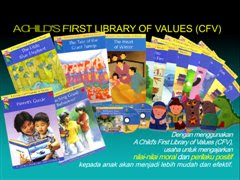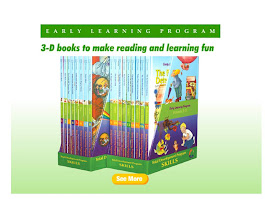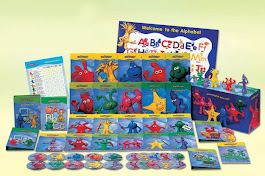1. The MOST formative years are before a child enters school.
BRAIN DEVELOPMENT :
- By 8 months , a baby’s brain has about 1000 trillion nerve connections. By the age of 10, that number reduces to just 500 trillion or less
- Early experiences impact the reduction in nerve connections. The brains on a “use it for lose it” basis
- Studies on neglected children who were rarely touched or spoken to, and who had little opportunity to explore and experiment with toys, had brain 20-30% smaller than most children their age
Did you know that language learning is a natural process during the early years?
During the first six months of life, babies babble using a combination of 70 sounds that make up all the languages in the world. They will then learn to talk using only the sounds and words they pick up from their environment. For this reason the first few years is the best time for a child to learn another language.
Pre-school years are vital years!Fifty percent of the ability to learn is developed in the first four years of life, another 30 percent by the age of 8 and the remaining 20 percent by the age of 18. Everything we learn later grows from the patterns established during these years
The habit of reading and the love of learning are developed at home!
Reading skills are important
While knowing how to read is essential for day-to-day survival, developing a passion to read opens new worlds for children. By reading, children can acquire all the knowledge, skills and values essential for their success in school and in life.
Did you know that about 20 to 30 percent of school-age children have difficulties learning to read?
During early grades, their difficulties are quite embarrassing to them. This humiliation suppresses their motivation and self-esteem. Children who are most at risk for reading difficulties are those who were not read to at home.
Reading to your children...
- Is an integral part of teaching them how to read
- Makes it easier for them to develop their speech and language
- Teaches them new vocabulary and pronunciation
- Builds their listening skills and increases their attention span
- Stimulates their imagination and fosters their natural curiosity
- Develops their ability to express themselves more clearly and confidently in spoken and written terms
- Is a great way to prepare them for the school environment
- Is a wonderful bonding experience that nourishes emotional development
Reading to our kids molds them into readers, which significantly increases their potential for academic as well as lifelong success!
3. Your child spends more than twice as much time at home as in school!
- If your child starts kindergarten at the age of four, he/ she would have spent about 17,500 waking hours at home with you already! [4 years x 365 days x 12 hours = 17,520]
- On an average, each child gets only about 11 minutes of individual attention during a typical day at school?
[40 minutes / 30 children x 8 classes = 10.66]
[40 minutes / 30 children x 8 classes = 10.66]
- A child can often learn more effectively in the relaxed and casual environment of the home, where there is no peer pressure
That makes your home the most important place of learning for your child, and you your child's most important teacher, doesn't it?
Should children be reading or learning all the time?
No. Children need a balanced program that takes care of their physical, mental and emotional needs
On an average how many hours a week does your child spend in:
- front of a screen - watching television, playing video games, computer/Internet?
- physical activities - sports, outdoor games, etc?
- art activities - music, painting, others?
- learning activities - reading, writing, different forms of learning experience
- In the absence of a variety of home-learning materials that are relevant and attractive to the child, a child will naturally be more attracted to other activities
4. School alone does not prepare your child for an increasingly competitive world!
Did you ever wonder why such a small percentage of
- students actually pursue their field of interest?
- applicants get accepted in good colleges and universities around the world?
- qualified professionals are actually successful in their respeveyibe jobs or businesses?
Some of the key attributes of highly successful individuals are:
- Job skills - knowledge and skills of the particular field
- Analytical skills - imagination, creative thinking, reasoning, decision making, etc
- Social skills - interacting, managing and motivating others
- Personal attitudes - self discipline, will power, ambition, optimism, etc
- Values - integrity, honesty, respect, tolerance, empathy, etc.
Some of the key attributes of highly successful individuals are:
Job skills - knowledge and skills of the particular field
Analytical skills - imagination, creative thinking, reasoning, decision making, etc.
Social skills - interacting, managing and motivating others
Personal attitudes - self discipline, will power, ambition, optimism, etc.
Values - integrity, honesty, respect, tolerance, empathy, etc
Most of these skills and values are not formally taught in schools and colleges!
Howard Gardner of Project Zero at Harvard University has discovered that there are seven distinct types of intelligence:
Verbal/Linguistic - the writer, orator, attorney
Logical/mathematical - the scientist, mathermatician, philosopher
Musical - the musician, entertainer, artist
Visual/spatial - the architect, photographer, painter
Body/kinestheric - the athlete, dancer, actor
Interpersonal - the counselor, teacher, salesperson
Intrapersonal - the poet, efficiency expert
The school curriculum mostly focuses on linguistic and mathematical intelligence.
The rest of our children's intelligence, therefore, needs to be developed outside school, doesn't it?
--------------------------------------------------------------------------------
In summary
Early years are critical, and kindergarten is too late to start learning
Reading habits are important, and need to be developed early and at home
Children have a lot of free time that can be utilized more productively
Now is the time to prepare our children for the competition they'll face in the future
-----------------------------------------------------------------
DESKRIPSI
· Ilustrasi berwarna dan hidup pada setiap halaman – menarik perhatian anak-anak dan mempertahankan ketertarikannya, membantu membangun konsentrasi dan keterampilan membaca.
· Catatan untuk orang tua pada setiap awal halaman buku – menjelaskan isi buku, bagaimana memanfaatkannya dan menyarankan aktivitas-aktivitas tambahan yang berguna.
· Permainan interaktif untuk menemukan obyek dan binatang-binatang yang tersembunyi – membantu membangun keterampilan observasi.
· Teka-teki dan puisi – menantang anak Anda, melatih memberikan alasan dan membangun berpikir lateral.
Dengan elemen-elemen yang menyenangkan, membuat seri ini menjadi favorit anak Anda!
Source taken from : Early Time Home Learning and Tira optima
For order please call ihermawaty@gmail.com or motherteam.support@gmail.com
For order please call ihermawaty@gmail.com or motherteam.support@gmail.com

.bmp)



.jpg)
0 comments:
Post a Comment